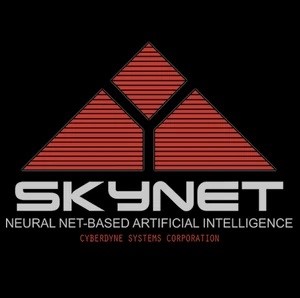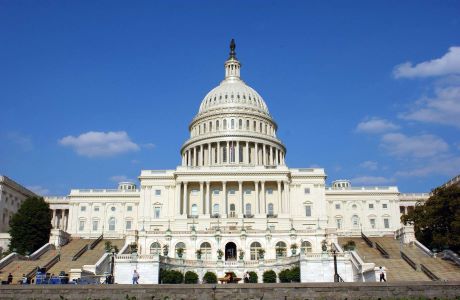Artificial Intelligence (III)
Please become a paid subscriber.

Continued from Artificial Intelligence (II)
From information technology's brief history, it can be concluded this new generation of technology, valued exclusively by established industrial economic worth, will continue along these same worn paths at an ever accelerated pace. However, just as concerning is the development of a more sophisticated and powerful ability of networking the machines, giving the machines a greater ability to communicate with themselves, locking in established power, simultaneously constraining future choice, and increasingly limiting diversity. This inter-machine communication will bring about the greatest change and by no means necessarily for the better.
We have no politics of technology to in anyway influence the power of these corporations implementing this technology, even less ability to influence the design of the technology itself. Incredibly, across the Industrial Era, technology was never conceived as a fundamental political force. The same thinking continues at the dawn of this new era of information technologies. Even more so than with the Industrial Era, development of technology has been left exclusively to the technologists, there can be no greater recipe for disaster. The industry is largely made up of people with no greater understanding of the human experience than interacting with their machines. They have a complete lack of historical knowledge and any larger environmental perspectives, making them not so much unique as average Americans. It's truly hard to be critical enough. Without more representative, knowledgeable, and inclusive development, it's hard to imagine little good coming from this technology.
Perfectly exemplifying how there is no politics of technology, a letter was recently released by mostly a number academics calling for a six-month pause on AI implementation. The idea a six month delay could mean anything is so ridiculous it makes any point the letter attempts to make moot. But then it reads more like a business development concern of someone blindsided and caught flatfooted by the pace of technological development. It's no surprise to see the second signature on the letter is Elon's – a big enough pop-phenomenon to go by one name, you know, like Madonna or Snooki. Hypocrisy of hypocrisies coming from a guy who spent the last decade promoting taking the steering wheel out of your hand.
If Elon's signature on the letter does not make the letter ludicrous enough, the call for “new and capable regulatory authorities” seals it. Regulatory authorities! Who? The dysfunctional, corrupt, militaristic circus in DC?

Thus defines the present limits of tech imagination. At one end a person who thinks the most revolutionary aspect of the last four decades of computing was the graphical user interface, at the other end, a supposed competitor, popular for wanting to electrify American car culture. Again, this is by no means a critique of just of a couple individuals, they are horridly representative of the entire industry, the most graphic warning of our inability as a society, as a civilization to in anyway influence this technology's development.
In 1995, I attended a conference in Aspen Colorado called, “Cyberspace and the American Dream.” My interest was from a political angle, thinking this new technology might be a way to begin reviving and reforming our critically failing democracy, though I was learning everyone else, and I mean pretty much everyone, were mostly or exclusively concerned about making money.
The conference was put on by a group allied with the new Republican Speaker of the House – the loathsome Newt himself. Attending were many of the then leading lights or at least leading advocates of the recently public internet. I wrote a piece on the conference lamenting its lack of any and all political understanding. The piece titled, “Power, Cyberspace, and Democracy” holds up well after 30 years. In fact it's depressing how the documented lack of political understanding, along with the love of the military and reverence for colossal corporations has changed not at all.
The piece made one specific point directly addressing this next generation of technology and the complete lack of political understanding by the gathered tech avant-garde. I wrote,
“One disturbing discussion touched on the power of markets, but never in much detail -- a failure to get to the root. This concerned the idea of automated cyber systems and their increasing role in society. Understanding that cyber comes from the Greek “to control,” Kevin Kelly, Editor of Wired Magazine, brought up one of the most intriguing ideas and greatest concerns for the future. The more human interaction is conducted through electronic media, the greater the opportunity to automate complex processes, resulting in the eventual creation of automated mechanisms of control and non-human control responses.
“I approached Kelly during a break and said I was glad to hear him bring up the topic of control, and thus begin to broach fundamental questions of power. He looked at me rather quizzically and stated, “Control did not necessarily have anything to do with power.” I was rather taken aback by this answer.”
I concluded,
“In human interactions, control mechanisms are always based on power. Control mechanisms in society are grounded in power, whether democratic or authoritarian it’s always present.... This question of control or regulation of human interactions is an important one. But it is imperative when dealing with these questions, that they are rooted in an understanding of power. Without this understanding, the consequences are frightening. Our rudimentary comprehension of complex systems has recently shown that our past conceptions of control are greatly deficient. We are now in the process of creating cyber-systems which will effect our lives on every level from global currency markets to the neighborhood ATM. The more they are integrated into human affairs, the more power we cede to them. This process needs to be studied without blinders.”
Yet here we are, three decades later. To say we have developed no greater understanding about the politics of technology would be wrong, it’s gotten worse. In many ways, the internet has been a more radical technology than even its most zealous advocates predicted thirty years ago. Designed exclusively by technologists and the big corporations they serve, this new generation of technology promises even greater control and concentration of power.
At this point, we can't talk about democracy without talking about technology. If there is to be a democratic future, the architecture, design, processes, and control of this technology needs to be distributed. The alarm bell that should be ringing in everyone's head with the announcement of the “Age of AI” is the entire design and implementation of information technology has been overwhelmingly undemocratic. This new generation, call it Artificial Intelligence or anything you want, promises to be even more so.
The era of industrial technology is not sufficient to teach us about the new processes of information technology. Industrialization was a linear system, especially in how it was valued. Industrial systems kept unaccounted the costs of and to the greater environment in which it operated, whether it was the exploitation of resources on the front end or the waste at the back end. Value was measured simply through production and consumption as if either end didn't exist.
AI is by definition a whole, cyclical system. Whatever is produced is dependent on continuous feedback reincorporated into a perpetual processing system. In this way, it is much more familiar to organic processes than industrial ones. If it is to be democratically governed, our agrarian structures of government, that proved largely incapable of governing industrial technologies will need to evolve. They will need to become constantly interactive, much more participatory, and distributedly networked, not stasis centralized bodies issuing edicts. Maybe most transcendent is instead of issuing vast, general, laws for the ages, participatory government will be unending processes of valuing, revaluing, and evolving, more like life itself. The future is here, it has no manual, but it does have more than a few powerful entrenched interests.

